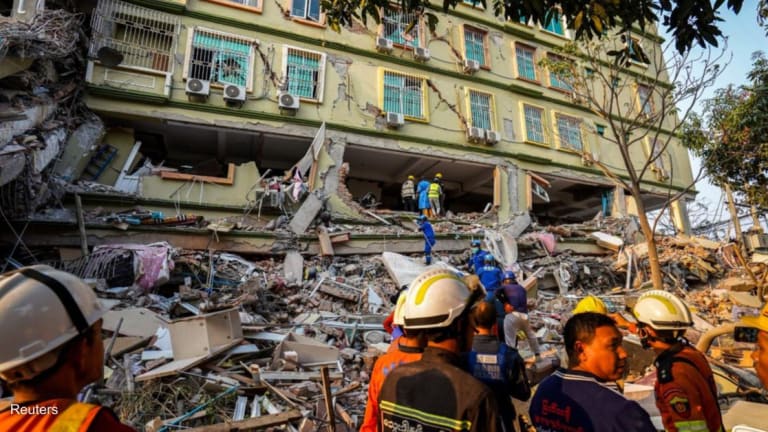
Nobuyuki Aoki still gets nostalgic remembering his former colleagues in Myanmar. The Burmese were very friendly, talented and cooperative, he said with a smile.
“I found the Burmese pretty much close to the Japanese,” the aid worker said.
Aoki moved to Myanmar’s capital Yangon in January 2006 as program director with the Adventist Development and Relief Agency. He oversaw an annual budget of $2 million. He designed and managed the whole project cycle for seven projects on issues such as water and sanitation, economic development and food security.
ADRA in Myanmar
Established in 1956, ADRA is the humanitarian arm of the Seventh-day Adventist Church. With a staff of more than 4,000 spread across 125 countries, the U.S. nongovernmental organization focuses on food security, basic education, primary health care, economic development and emergency management.
As ADRA program director, Aoki reported directly to the organization’s country director. He was one of only four foreigners in the organization’s 120 staff member-strong Myanmar operation. Its high number of local staff distinguished ADRA from other international NGOs operating in Myanmar, to the point that even some government officials considered ADRA more as a domestic organization, Aoki recalled.
Managing Myanmar projects was similar to managing those in other developing countries, Aoki said. But the political environment was different.
Foreigners are usually confined to tourist areas unless they get travel permits in advance. Aoki often waited one or two months to get field trips approved, which made it hard to respond in person to urgent calls from project staff.
Travel limitations increase the need to focus on “capacity building of your own staff,” Aoki said.
“You will have this limitation on the travel so basically you cannot have a tight control on your projects, which means you have to rely on your local staff,” he noted.
Its relatively high salaries enabled ADRA to hire higher-degree local staff, which proved key to the NGO’s success.
Work on HIV and AIDS, education and microfinance is almost off-limits to foreign NGOs in Myanmar, he pointed out. Instead, it is easier to operate projects concerning agriculture and livestock.
ADRA did manage to run some education-related projects by building some schools in the Golden Triangle, in the country’s northwest. There, opium production is rampant and the government’s powers are, according to Aoki, limited. This peculiar situation made it easier for the foreign NGO to be granted access to the education sector.
To increase funding, Aoki strengthened his office’s ties with ADRA donors in the United States, United Kingdom, Australia, South Korea and other countries, as well as organizations such as UNICEF, the United Nations Development Program, World Food Program and European Commission.
Myanmar stint
Aoki earned a master’s in business administration from the University of California before working as senior associate for an American financial services firm in Los Angeles.
He joined ADRA’s Japan country office in 2001, and proceeded to restructure its financial, operational and strategic management, and strengthen ties with ADRA’s 120 country offices.
In the following five years, Aoki got involved in a variety of projects, including a UNICEF-sponsored educational campaign in Afghanistan, sustainable agriculture programs in Nepal, Thailand and Laos, food distribution in Tajikistan on behalf of the Japanese embassy, and cleft lip and palate surgery in Nepal. He also managed $450,000 going toward tsunami relief in India.
Although based in Tokyo, he undertook field trips to monitor and evaluate operations and learned about funding schemes used by various governments.
Then Aoki decided it was time to apply his expertise to the field. The choice of a host country came easy: Myanmar had been his favorite fieldwork destination and ADRA’s operation in the country was still relatively small.
Although Myanmar’s political, social and economic situation can be a challenge, development projects can succeed, Aoki said. But foreign NGOs must develop “a very good relationship with the government” and bring one thing: patience.
“You want to be flexible,” he said. “You need to have development principles, but using those principles, you have to be flexible.”
When Buddhist monks and other Burmese began peaceful protests against the military regime in September 2007, Aoki was in Bangkok. Shortly afterward, international development activities were temporarily frozen, while his assignment in Myanmar came to an end. Since then, he has not re-entered the country.
“I was not able to go back,” he explained, “and I miss it a lot.”




